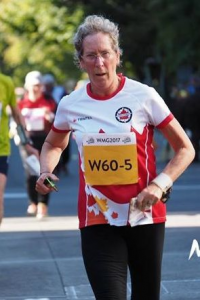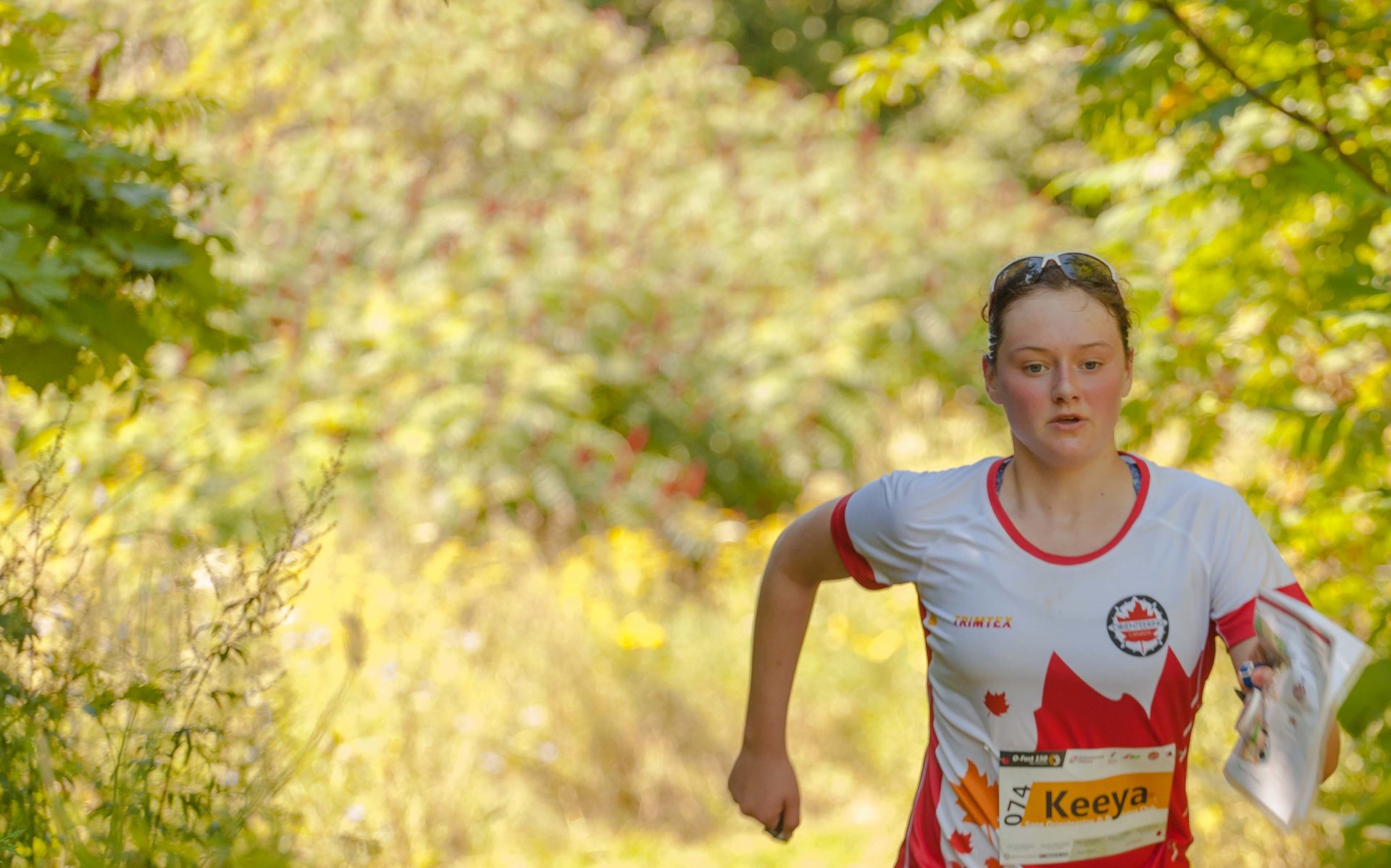
Robyn Rennie has been a central part of the Vancouver orienteering scene for decades, both as a fierce competitor and as an event organizer par excellence.
If you have taken part in some of the Why Just Run weekend events, BC Championships or Canadian Championships that GVOC has hosted over the years, you will have seen Robyn playing almost any role, from Start Chief to Event Director. Here is her story….
DW: Did you pursue sports as a child? Is so, what were your favourites?
RR: Not much – I was always chosen (i.e. left over after the choosing) to be the score keeper of any team sport, but would get bored sitting on the sideline so was no good at it. I did finally make a couple of relay teams by Grade 12 in both running and swimming, but basically, I didn’t really enjoy sports as a child.
DW: Where and how did you first get started in orienteering?
RR: I first started Orienteering in 1975 when I met Bruce and we were both in Canberra, Australia. He had done a couple of Mtn Marathons at University (early precursors to Rogaines) and found the orienteering club when he moved to Canberra. It was an active group, so we had three great years with them. I started on the lowest level courses and worked my way up to the Elite level. We came to Canada in 1977 and quickly found the local Vancouver clubs. One of the first races here was at Thetis Park in Victoria and I actually DNF’d because I had been out for two hours on the Long course and figured that was irresponsible!! As it turns out, I would have won if I had kept going. My first introduction to SALAL and my only DNF!
DW: Which orienteering discipline do you prefer, and why?
RR: I used to like the two-day total time long events – it required consistent performance over the events which was something that I was fairly good at. Now I prefer the middle distance, faster control picking without the requirement to focus on the long legs. I was really enjoying Sprint racing until it has become too hard on my joints. I always love a relay too; it is fun to run on a team, which we rarely do.
DW: How many pairs of O shoes do you own?
RR: One. For a number of years every pair that I purchased was taken over by an unnamed elite younger runner that had the same size feet!
DW: Do you prefer to use a thumb compass or a baseplate compass?
RR: I always owned a baseplate compass which I used to hold in my hand as a reassurance without really ever using it, so the transition to a thumb compass was difficult. I finally – last year- purchased a thumb compass that settles more quickly, and have had more success with that.
DW: How do you stay fit for orienteering?
RR: Riding bike, cross country skiing and hiking. I no longer do much running, saving myself for the big events.
DW: What do you consider your greatest strength and your biggest weakness as an orienteer?
RR: I think I have a really good natural sense of direction, I rarely, if ever, do a 180 error so I am able to go into and out of a control quickly. My biggest weakness is always the last few controls as I get tired, I have lost so many races on the last couple of controls.
DW: What was your worst mistake in an O race?
RR: I did actually run off the map in an event back east (can’t remember which one). Different from the time I ran into a moose in Quebec. And I also became incredibly lost at the NAOC events in Cranbrook a number of years ago by stopping too early to look for the controls.
DW: How many parts of North America have you orienteered in, and what was your favourite O map
or terrain?
RR: In every province of Canada except Nunavut and the NWT – including the COC’s in Newfoundland in 1979 (2nd in W21 at the COCs!!). Washington, Oregon, and Maryland in the US. My favourite terrain is the Yukon, and the open grasslands of Alberta and sandhills of Manitoba. Anything technically complicated but not physically complicated.
DW: If you had an open airline ticket, where would you most like to go orienteering next?
RR: Swedish O’ringen. This should be on every orienteer’s bucket list and I need to get this done before I cannot do it anymore. Otherwise, anywhere in Europe or Australia. It is so much fun to go to an event that I haven’t had to help organize!!
DW: In what part of the sport do you most like to volunteer?
RR: I love planning the events, putting together the pieces so that others can enjoy the sport. I also love picking up controls in enjoyable areas. It’s a good chance to get back out on a map and practice.
DW: If you had the power, what aspect of our sport would you change?
RR: I would love to figure out how to make it all less labour-intensive. There are some developments
around using mobile devices and virtual controls, which would be fun to try.
 Orienteering BC
Orienteering BC